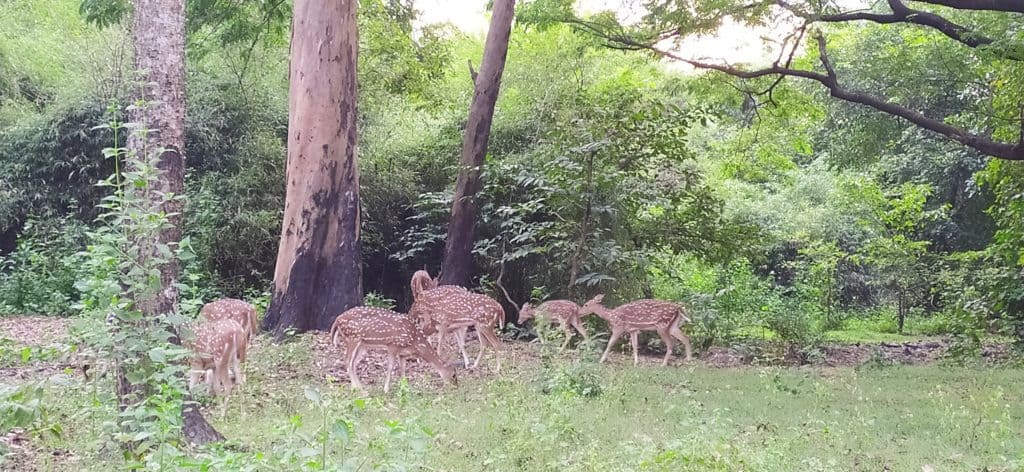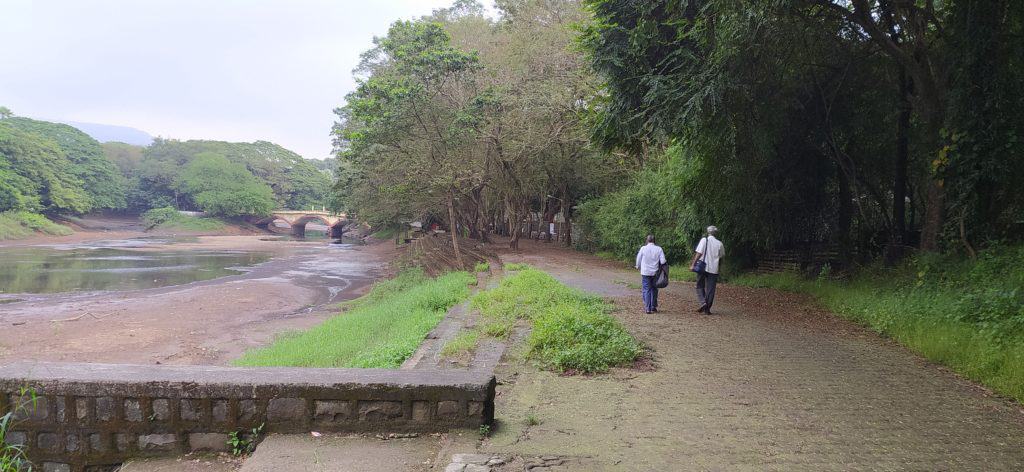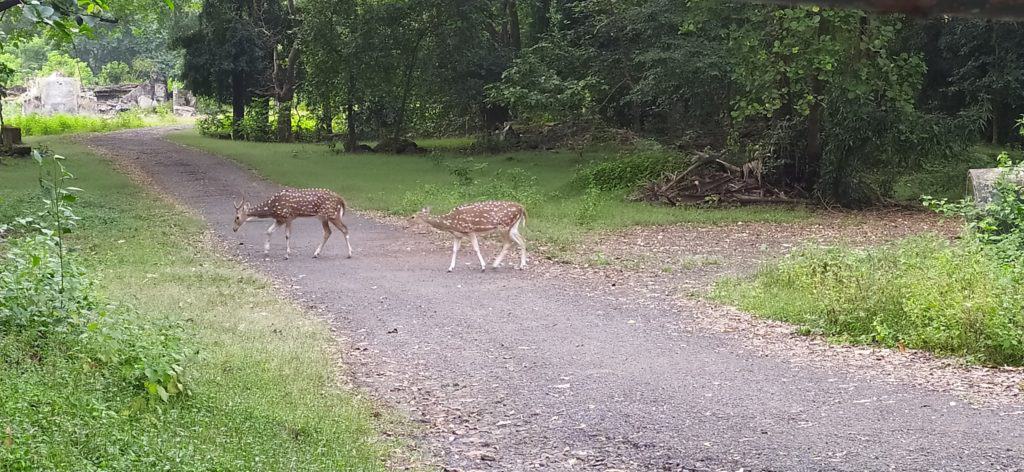Currently, over 60 animals housed in various parts of the 103 sq kms of the Sanjay Gandhi National Park are available for adoption. These include about a couple of Rusty Spotted Cats, two leopards and about 56 herbivorous animals like Blue Bull or Neelgai, spotted deer and four-horned antelopes.
Modelled on the lines of Bengaluru’s Bannerghatta Biological Park, the sponsorship fee of the animals have stayed unchanged since the inception of this animal adoption scheme in December 2013.
According to the forest department, the purpose of sponsorship is primarily to build goodwill among citizens for the park and its animals. The money is used for food, medication and other expenses for the animals. Therefore, the rates of sponsorship to adopt different animals vary. Leopards seem to be season favourites though.
Leopards most favoured?
Three lions and five tigers at the Sanjay Gandhi National Park (SGNP) are up for adoption, with no takers. However, twelve of the fifteen leopards housed at the leopard rescue centres are sponsored by prominent political scions, television actors, government collectors, cricketers. They even manage renewals.
Officials say the indifference towards the lions and tigers is probably due to the high sponsorship fee. While leopards command a sponsorship fee of Rs 1.2 lakhs per annum, the fee for lions and tigers is around three lakhs. “We will ask the authorities to probably reduce their sponsorship fee in order to help find more sponsors,” says G. Mallikarjuna, Director, SNGP.
Most of the leopards brought to these centres are either injured or caught for causing man-animal conflicts or are abandoned as cubs. These leopards are thus not available for general public viewing. “However, patrons are allowed to visit their adopted animals once a week and this serves as another major incentive for people,” explains Mallikarjuna.
However, lions and tigers are a part of the safaris and are available for viewing from vans.
Lockdown impact on national parks
The primary source of income for the SGNP is the entry tickets ranging to about Rs 60-70 lakh per month. During the peak monsoon seasons the national park attracts maximum footfalls surging revenues to the tune of about Rs one crore per month. The complete closure for seven months has meant very little to no revenue.

To make matters worse, the lockdown saw eight SGNP staffers test positive for Covid. Ongoing projects like development of a taxidermy centre, a tourist center, redevelopment of the Nature Information Centre though continue steadfastly with the SGNP’s reserve funds.
Star power to animals’ rescue
Television actor Sumeet Raghavan adopted a leopard in SGNP. “Our city has so many beautiful things to offer and we must come forward to support and strengthen such initiatives. For me adopting the leopard was my way of giving something back to my city,” says Raghavan.
Cricketer Sandeep Patil, who got to know of the leopards in SGNP through a forest secretary, has now become a regular part of the National Park. “I have been in love with wild animals as a kid and the relationship with the wild strengthened during the 18 years that I spent in Kenya” says Patil. “I recommend my friends to adopt animals and even got my neighbour to sponsor an animal. I don’t just visit Tara, my adopted leopard, whom I refer to as my girlfriend but also volunteer in various works there. The SGNP and its animals are a legacy of our city, which we must sustain and preserve for our future generations,” says Patil.
Last September, saw the SGNP witness angry protests from political workers of Union minister Ramdas Athawale, upset at the death of Bhim, a leopard sponsored by him. Though the post mortem had revealed death by cardiac arrest, the supporters were upset at not being intimidated about his death and subsequent cremation.
Questions around animal adoption
Gopal Jhaveri, Founder, River March wonders why while most of the animals in say, the Kolkata zoo or the Sabarmati zoo are adopted, not in SGNP? “If citizens start taking interest, then they are bound to raise queries about issues like the chemotherapy treatment of the tigers that had cancer recently or about Lions without mates or about the size of the cages or about the kind of meat served etc,” he says. For him, citizen interest in these animals could be the game changer.
If you want to sponsor animals, make a written application to the SGNP director. Following which, a committee will decide on your case. Once the sponsorship is approved, payment could be made by demand draft or RTGS to the Naitonal Park.
While the name of the sponsors will be displayed on a chart in front of the cage, the patrons will have no say in taking decisions regarding the animal, according to a 2013 state government resolution.
The fee won’t be refunded in case the animal dies during the sponsorship period.

